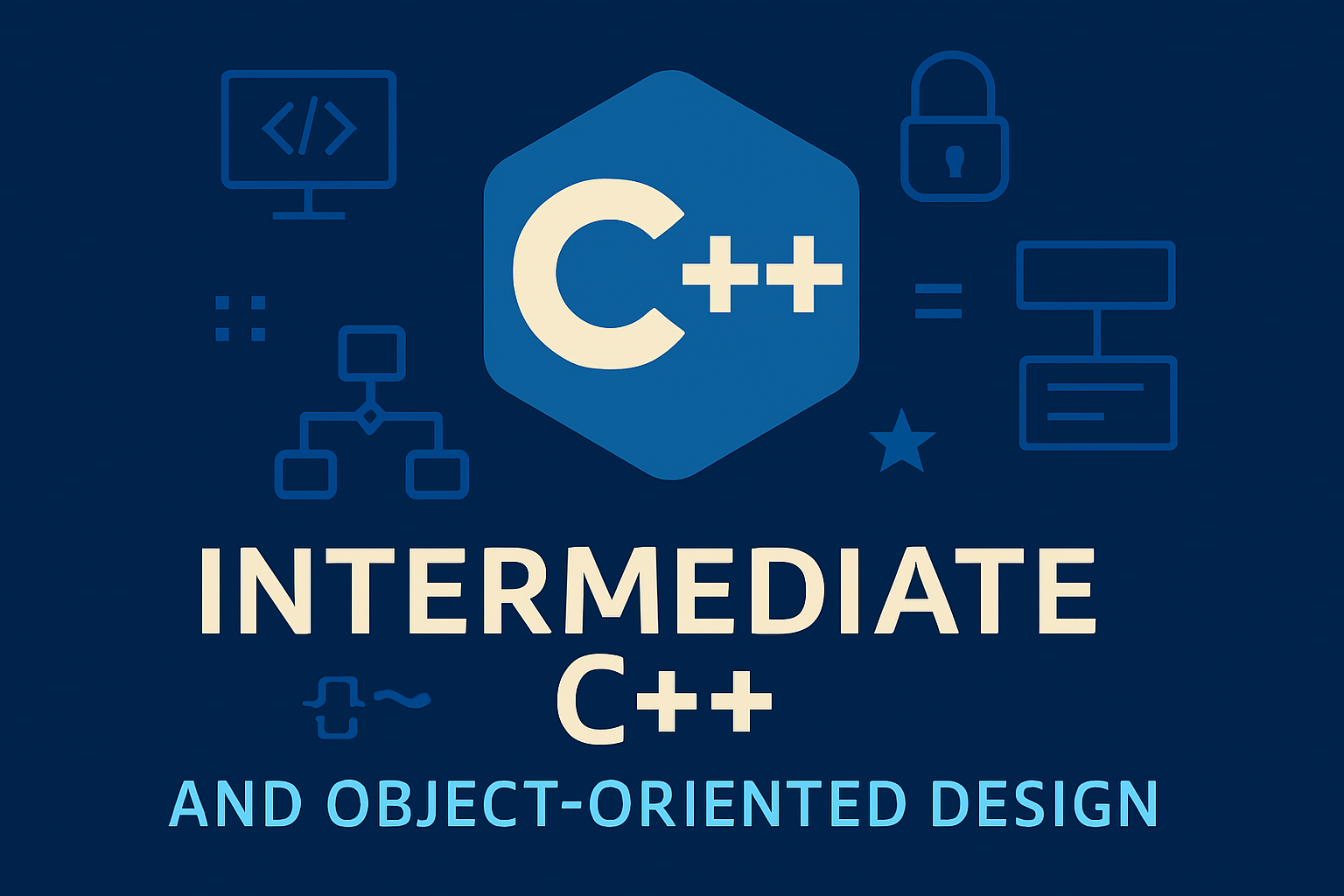Intermediate C++ and Object-Oriented Design
← Back to Courses
Category: Programming
Duration: 60 Hrs
Building upon the fundamentals, this course delves deeper into the principles of object-oriented programming in C++. Students will learn about classes, objects, inheritance, polymorphism, data structures, and memory management. This course emphasizes good programming practices and object-oriented design principles to build more complex and maintainable applications.
Course Modules
Learners dive into the core principles of object-oriented programming (OOP) in C++. This module introduces classes, objects, access control, and lifecycle management through constructors and destructors.
- Define and instantiate classes and objects
- Use access specifiers (
public,private,protected) to control data visibility - Implement constructors for object initialization
- Use destructors for resource cleanup and memory management
This module explores how C++ enables code reuse and hierarchy through inheritance. Learners will understand different inheritance types and how constructors behave in derived classes.
- Implement single, multiple, multilevel, and hierarchical inheritance
- Override constructors in derived classes
- Control member access across base and derived classes using access specifiers
- Understand base class initialization and constructor chaining
Learners will explore compile-time and runtime polymorphism, enabling flexible and dynamic behavior in programs. This module covers function overloading, overriding, and virtual functions.
- Implement function overloading for multiple behaviors with the same name
- Override base class functions in derived classes
- Use virtual functions to enable runtime polymorphism
- Understand vtables and dynamic dispatch mechanisms
- Overload arithmetic operators (
+,-,*,/) for custom classes - Implement unary and binary operator overloading
- Understand operator function syntax and return types
- Apply operator overloading in practical scenarios (e.g., complex numbers, vectors)
Learners will explore generic programming using templates. This module enables writing flexible and reusable code for functions and classes.
- Create function templates for type-independent operations
- Define class templates to handle generic data structures
- Understand template instantiation and type deduction
- Apply templates in sorting, searching, and container design
This module introduces robust error handling using C++ exceptions. Learners will write safe code that gracefully handles runtime errors.
Use try, catch, and throw blocks to manage exceptions
Handle multiple exception types and nested exceptions
Create custom exception classes
Improve program stability and user feedback during errors
Learners consolidate their understanding by building a project that applies OOP principles. This module includes presentation, peer review, and instructor feedback.
- Design and implement a console-based project using classes, inheritance, and polymorphism
- Apply templates and exception handling in real-world scenarios
- Demonstrate modular design, code reuse, and abstraction
- Present project logic and receive constructive evaluation